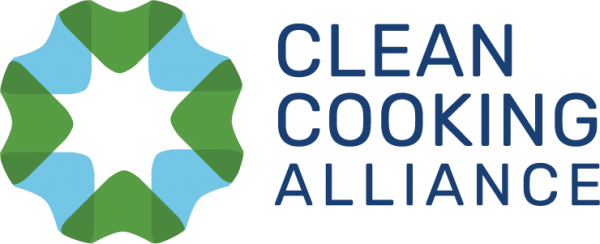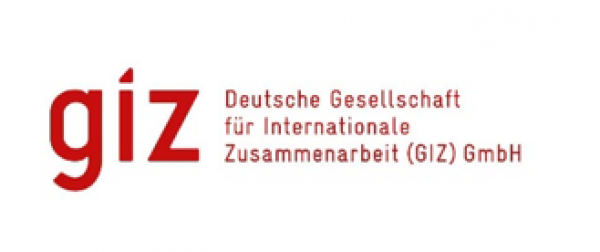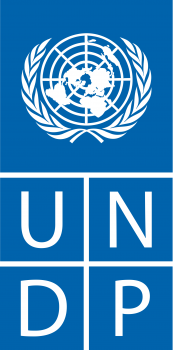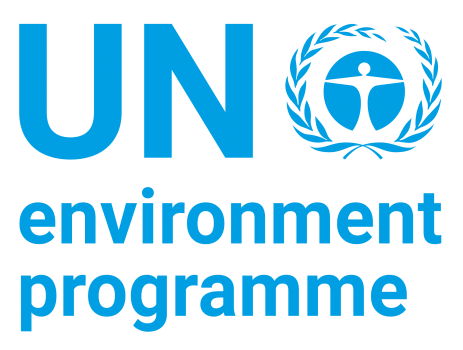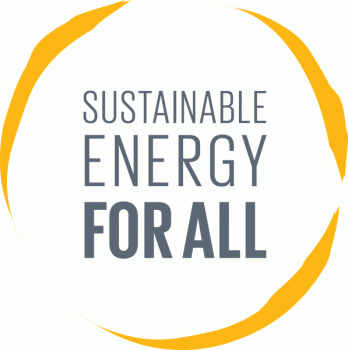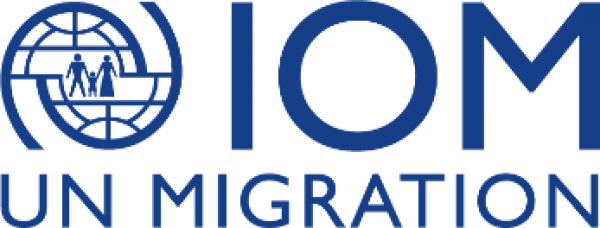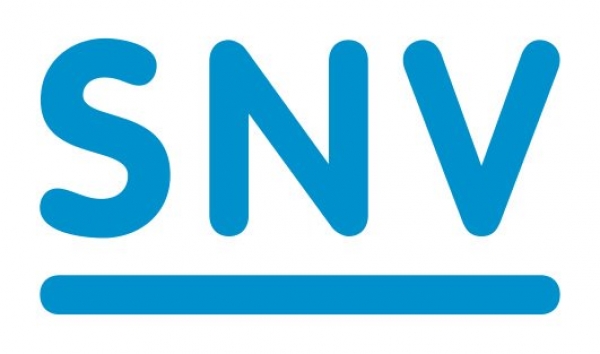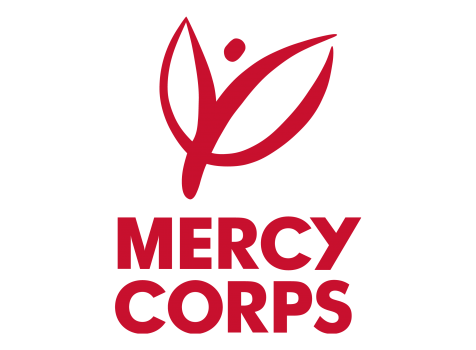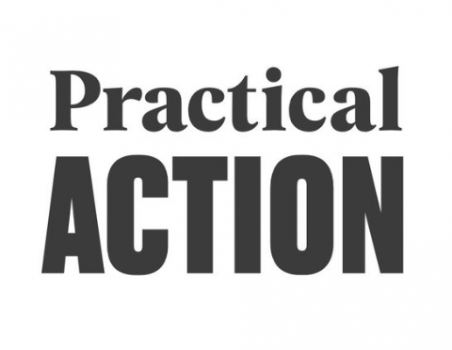Know our partners
Home > Who is Involved > Know our partners
BackAs there is no energy cluster in the humanitarian sector and energy is a cross-cutting topic, the GPA Partnership has been established to deliver the goals of the GPA Framework. The Partnership consists of a Steering Group and Coordination Unit who facilitate systemic, collective action on a needs basis. The GPA Partnership TOR is available here for detailed information on roles and responsibilities of the partners.
Clean Cooking Alliance (CCA)
About
Worldwide, more than one in three people depend on polluting open fires or inefficient stoves to cook their food, harming health, the climate, and the environment. The Clean Cooking Alliance (CCA) works with a global network of partners to build an inclusive industry that can make clean cooking accessible to all. Established in 2010, CCA is driving consumer demand, mobilizing investment, and supporting policies that allow the clean cooking sector to thrive.Contribution/Collaboration areas
To be added soon.Clean Cooking Alliance (CCA)
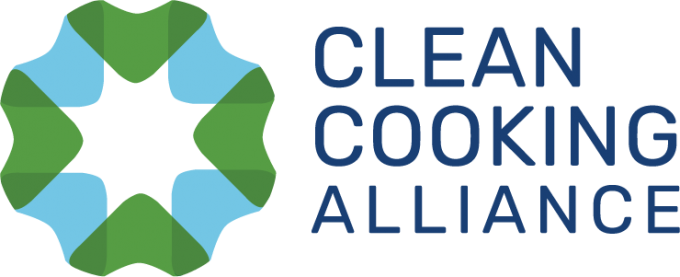
Website
https://cleancooking.org/Type of partner organization
International NGO
Involvement with the GPA
Steering Group
Clean Energy Challenge (CEC)
Area of Contribution/Collaboration
Planning and Coordination
Policy Advocacy and Host Community Resilience
Technical Expertise and Capacity Building
Area of Energy Intervention
Household Cooking Solutions
Geographic Scope
Global
GIZ
About
Deutsche Gesellschaft für Internationale Zusammenarbeit (GIZ) is a service provider in the field of international cooperation for sustainable development and international education work, we are dedicated to shaping a future worth living around the world. We have over 50 years of experience in a wide variety of areas, including economic development and employment promotion, energy and the environment, and peace and security. The diverse expertise of our federal enterprise is in demand around the globe – from the German Government, European Union institutions, the United Nations, the private sector, and governments of other countries. We work with businesses, civil society actors and research institutions, fostering successful interaction between development policy and other policy fields and areas of activity. Our main commissioning party is the German Federal Ministry for Economic Cooperation and Development (BMZ).Contribution/Collaboration areas
The Energy Solutions for Displacement Settings (SUN-ESDS) is a component of the BMZ commissioned Global SUN Program which works closely with UNHCR and local partners to provide energy solutions that cater to the needs of both refugee and host communities in our project countries- Uganda, Kenya, and Ethiopia. To that end, SUN-ESDS offers policy advisory services, implements technical measures, and cooperates with relevant stakeholders to promote sustainable and affordable energy access via market-based solutions and to create enabling framework conditions. SUN-ESDS is also the German contribution to the Clean Energy Challenge issued by UNHCR in 2019 with the following objective: “All refugee settlements and nearby host communities will have access to affordable, reliable, sustainable and modern energy by 2030.” The Project Development Programme (PDP) is implemented by the GIZ within the scope of the German Energy Solutions Initiative and commissioned by the German Federal Ministry for Economic Affairs and Climate Action (BMWK). Through the German Energy Solutions Initiative, PDP supports humanitarian organizations by analysing their energy needs, developing turnkey renewable energy and energy efficiency solutions, advising on the best financial models suited to them and connecting them to clean technology partners for implementation. PDP is currently providing this support for humanitarian organizations in Nigeria under the Nigeria energy transition project in collaboration with the GPA Coordination Unit. The collaboration also extends to build capacity, raise awareness, and connect with private sector for climate friendly energy project implementation. EnDev is a strategic partnership of like-minded donors and partners to support access to modern energy. Access to modern energy is a prerequisite for social and economic development. EnDev works in more than 20 countries around the globe. The driving force behind EnDev is the partnership of Germany, the Netherlands, Norway and Switzerland: donors who are committed to accelerating energy access. The GIZ and the Netherlands Enterprise Agency (RVO) coordinate the programme. By end of 2020, EnDev supported 23.8 million people to gain access to electricity or improved cooking technologies. EnDev also reached 28,500 social institutions, 73,550 micro, small and medium-sized enterprises. EnDev supports market-based energy access in displacement and conflict-sensitive situations notably in Burundi, Ethiopia, the Democratic Republic of Congo, Kenya, Malawi, Mali, Mozambique, Tanzania and Uganda.GIZ
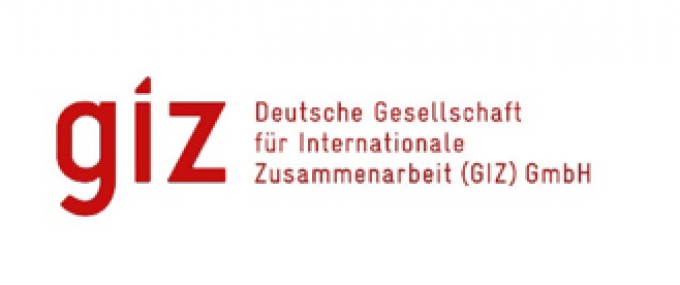
Website
https://www.giz.de/Type of partner organization
International NGO
Involvement with the GPA
Steering Group
Task Force
Clean Energy Challenge (CEC)
Humanitarian Energy Exchange Network (HEEN)
Area of Contribution/Collaboration
Planning and Coordination
Policy Advocacy and Host Community Resilience
Innovative Finance and Funding
Technical Expertise and Capacity Building
Data, Research and Evidence
Area of Energy Intervention
Household Cooking Solutions
Household Electrification Services
Electrification of Community Facilities
Decarbonization of Organization/Infrastructure
Emergency Response
Geographic Scope
Global
Regional
United Nations Development Programme (UNDP)
About
As the United Nations lead agency on international development, UNDP works in 170 countries and territories to eradicate poverty and reduce inequality. UNDP help countries to develop policies, leadership skills, partnering abilities, institutional capabilities, and to build resilience to achieve the Sustainable Development Goals. The work is concentrated in three focus areas; sustainable development, democratic governance and peace building, and nature, climate, resilience and energy. UNDP’s mandate is to end poverty, build democratic governance, rule of law, and inclusive institutions. UNDP advocate for change, and connect countries to knowledge, experience and resources to help people build a better life.Contribution/Collaboration areas
To meet the objectives of the Strategic Plan in line with the 2030 Agenda, UNDP is implementing six cross-cutting approaches to development, known as Signature Solutions on poverty and inequality, governance, resilience, environment, energy and gender equality. A strong, integrated way of putting UNDP best work, or 'distinctive' skill set, to achieve the Sustainable Development Goals. The work is powered by digitalization, innovation and development financing. Access to energy is a precondition for health, education and economic prosperity: an essential multiplier for all the Sustainable Development Goals. Some 759 million people still lack access to electricity and 2.6 billion live without clean cooking options, disproportionately hurting women and girls. Without these basics, the most vulnerable risk being trapped in cycles of poverty and inequality. In this regard, the first objective of UNDP is increasing energy access for those furthest behind. By speeding up investment in distributed renewable energy solutions, especially for those hardest to reach and in crisis contexts, it aims to increase access to clean and affordable energy for 500 million people. Second, UNDP work to accelerate the transition to renewable energy through systems changes that support inclusive, green economies, particularly in countries with low levels of renewable energy generation or poor energy-efficiency improvement rates. This work capitalizes on technological gains, clean energy innovations and new business models in the energy sector. Decreasing fossil fuel subsidies or shifting investment incentives, for example, create winners and losers. UNDP work with partners to ensure that such transitions are fair, their impact on the vulnerable understood and mitigated. By adopting a human-centered approach, for example taking productive use of energy as an entry point rather than technical challenges, connections with areas like poverty or gender equality naturally emerge, enabling a more integrated approach. Expanding energy access, accelerating clean energy transition and building resilience in fragile and crisis contexts requires an all-encompassing risk-informed approach for upstream and downstream interventions which can be characterized in three major elements closely mirroring the three phases of crisis. (i) Pre-crisis phase where upstream interventions include mainstreaming crisis-preparedness or risk reduction into energy financing and investments and/or programming through policy de-risking and institutional capacity development before any eminent crisis; (ii) During crisis phase where interventions include the integration of vulnerability assessments of energy needs in crisis or disaster response plans usually when a crisis starts, or disaster happens and; (iii) Post crisis phase where interventions include upstream and downstream activities related to scaling up clean energy solutions to support resilience building, stabilization and recovery through installation and deployment of solar solutions for long-term sustainable development.United Nations Development Programme (UNDP)
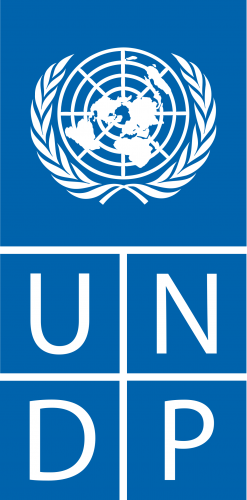
Website
https://www.undp.org/Type of partner organization
UN Organization
Involvement with the GPA
Steering Group
Area of Contribution/Collaboration
Planning and Coordination
Policy Advocacy and Host Community Resilience
Innovative Finance and Funding
Area of Energy Intervention
Household Cooking Solutions
Household Electrification Services
Electrification of Community Facilities
Decarbonization of Organization/Infrastructure
Geographic Scope
Global
United Nations Environment Programme (UNEP)
About
Since its inception in 1972, the United Nations Environment Programme (UNEP) has been the global authority that sets the environmental agenda, promotes the coherent implementation of the environmental dimension of sustainable development within the United Nations system and serves as an authoritative advocate for the global environment. UNEP’s mission is to provide leadership and encourage partnership in caring for the environment by inspiring, informing, and enabling nations and peoples to improve their quality of life without compromising that of future generations.Contribution/Collaboration areas
To be added soon.United Nations Environment Programme (UNEP)
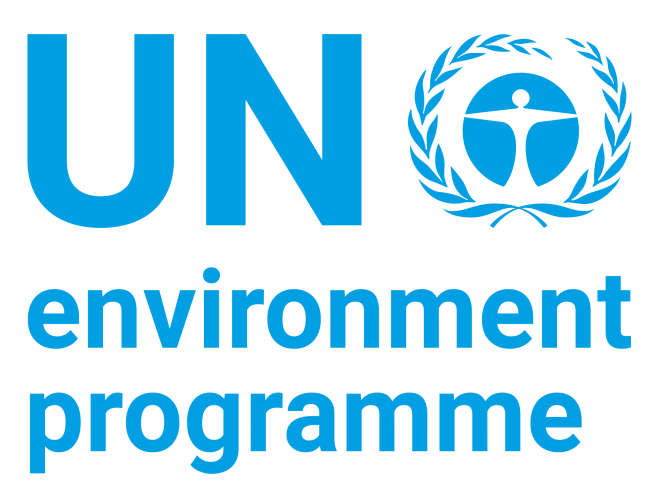
Website
https://www.unep.org/Type of partner organization
UN Organization
Involvement with the GPA
Steering Group
Area of Contribution/Collaboration
Planning and Coordination
Policy Advocacy and Host Community Resilience
Area of Energy Intervention
Household Cooking Solutions
Household Electrification Services
Electrification of Community Facilities
Decarbonization of Organization/Infrastructure
Geographic Scope
Global
Sustainable Energy for All (SEforALL)
About
Sustainable Energy for All (SEforALL) is an international organization that works in partnership with the United Nations and leaders in government, the private sector, financial institutions, civil society and philanthropies to drive faster action towards the achievement of Sustainable Development Goal 7 (SDG7) – access to affordable, reliable, sustainable and modern energy for all by 2030 – in line with the Paris Agreement on climate. We work to ensure a clean energy transition that leaves no one behind and brings new opportunities for everyone to fulfill their potential. www.seforall.orgContribution/Collaboration areas
To be added soonSustainable Energy for All (SEforALL)
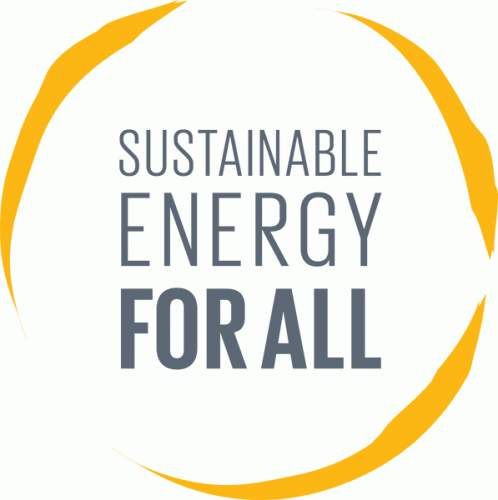
Website
https://www.seforall.org/Type of partner organization
International NGO
Involvement with the GPA
Steering Group
Clean Energy Challenge (CEC)
Area of Contribution/Collaboration
Planning and Coordination
Policy Advocacy and Host Community Resilience
Area of Energy Intervention
Household Cooking Solutions
Household Electrification Services
Electrification of Community Facilities
Decarbonization of Organization/Infrastructure
Geographic Scope
Global
Food and Agriculture Organization (FAO)
About
The Food and Agriculture Organization (FAO) is a specialized agency of the United Nations that leads international efforts to defeat hunger. Our goal is to achieve food security for all and make sure that people have regular access to enough high-quality food to lead active, healthy lives. With over 194 member states, FAO works in over 130 countries worldwide. We believe that everyone can play a part in ending hunger.Contribution/Collaboration areas
To be added soon.Food and Agriculture Organization (FAO)

Website
https://www.fao.org/Type of partner organization
UN Organization
Involvement with the GPA
Steering Group
Clean Energy Challenge (CEC)
Area of Contribution/Collaboration
Planning and Coordination
Policy Advocacy and Host Community Resilience
Technical Expertise and Capacity Building
Area of Energy Intervention
Household Cooking Solutions
Decarbonization of Organization/Infrastructure
Emergency Response
Geographic Scope
Global
International Organization for Migration (IOM)
About
Established in 1951, the International Organization for Migration (IOM) is the leading intergovernmental organization in the field of migration and works closely with governmental, intergovernmental and non-governmental partners. With 174 member states, a further 8 states holding observer status and offices in over 100 countries, IOM is dedicated to promoting humane and orderly migration for the benefit of all. It does so by providing services and advice to governments and migrants. IOM works to help ensure the orderly and humane management of migration to promote international cooperation on migration issues, to assist in the search for practical solutions to migration problems and to provide humanitarian assistance to migrants in need, including refugees and internally displaced people. Conflicts, armed violence, disasters, epidemics, pandemics and other crises force millions of people to leave their homes and communities, sometimes for years or even decades. More than 82 million people are currently living in displacement within and across borders with disasters displacing around 25 million on average each year. Economic downturns, political instability and other drivers also compel large population movements. As the leading UN agency working on migration, IOM is committed to saving lives and helping populations move out of harm’s way. IOM protects and assists those displaced or stranded by crisis and supports populations and their communities to recover. IOM works to mitigate adverse drivers that force people from their homes, help build resilience and reduce disaster risk so that migration is always a choice and not a necessity. The Organization is among the world’s largest humanitarian actors and one of the few international organizations directly implementing programs across the humanitarian, development and peace nexus to provide comprehensive responses at all phases of crises.Contribution/Collaboration areas
In 2017, IOM made an institutional commitment to improve the environmental performance of its operations at the strategic, programmatic and facility levels, with a special focus on the clean energy transition and circularity. Since 2018, IOM has been at the forefront of advocating for and piloting innovative approaches to enable the clean energy transition in facilities and operations and bring increased access to clean energy to displacement-affected communities. IOM is a founding member of the Global Platform for Action on Sustainable Energy Displacement Settings (GPA) and a member of the Clean Energy Challenge Action Group. In line with the United Nations system-wide commitments to environmental management and the vision of the GPA and the Clean Energy Challenge, IOM prioritizes two workstreams to support the clean energy transition in the humanitarian sector: increasing energy data availability and finding innovative solutions for financing the clean energy transition. Energy access data in displacement settings: IOM is the largest data provider on internal displacement through the Displacement Tracking Matrix (DTM). To support systematic energy data collection in humanitarian and human mobility contexts, IOM with support from NORCAP, has launched an Energy Module in the Displacement Tracking Matrix in 2021 as part of the Multi-Sectoral Location Assessment. These Frequently Asked Questions summarize the potential of this methodology and the ways partners working on Camp Coordination and Camp Management, Food Security, Shelter & Non-Food Items, Protection, Water, Sanitation and Hygiene, and other sectors can use the information to inform their energy programming. Innovative finance and procurement: IOM strives to play a leading role in management and operational innovation that could scale up the clean energy transition in the humanitarian sector. It does so by implementing innovative financial and procurement solutions and co-leading the innovative finance workstream under the GPA. IOM also works with NORCAP and the GPA Coordination Unit to develop innovative financing tools that could benefit the whole humanitarian sector. E-waste: IOM is leading one of the first sector-wide efforts looking at the issue of solar waste in displacement settings. The project, financially supported by Innovation Norway, aims to find a cost-effective solution through innovative partnerships with the private sector to repair, reuse and recycle solar lanterns and solar home systems and their accessories. Clean energy transition implemented by IOM missions worldwide: IOM missions are turning the clean energy vision into reality. Examples of initiatives include: deploying clean energy solutions in support of education, reducing GBV risks and increasing health and safety, working with partners to distribute non-food items, producing biogas onsite to help communities to meet their energy needs, and solarizing facilities and operations.International Organization for Migration (IOM)
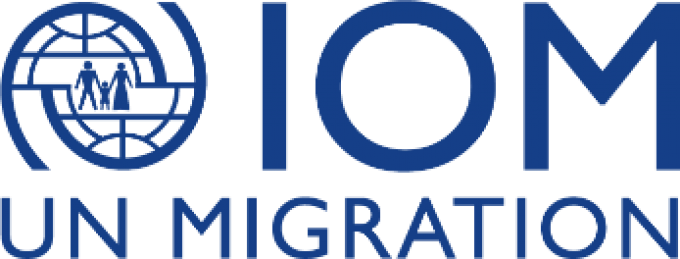
Website
https://www.iom.int/Type of partner organization
UN Organization
Involvement with the GPA
Steering Group
Task Force
Clean Energy Challenge (CEC)
Humanitarian Energy Exchange Network (HEEN)
Area of Contribution/Collaboration
Planning and Coordination
Policy Advocacy and Host Community Resilience
Innovative Finance and Funding
Data, Research and Evidence
Area of Energy Intervention
Household Cooking Solutions
Household Electrification Services
Electrification of Community Facilities
Decarbonization of Organization/Infrastructure
Emergency Response
Geographic Scope
Global
SNV
About
SNV is a not-for-profit international development organisation that makes a lasting difference in the lives of people living in poverty by helping them raise incomes and access basic services. We focus on only three sectors and have a long-term, local presence in around 24 countries in Asia, Africa and Latin America. Our team of more than 1,297 staff is the backbone of SNV. Globally, over 1.1 billion people live without access to electricity and almost 3 billion people lack clean cooking facilities. The world’s poor are continuously affected by the low availability of sustainable and reliable energy, with increasing difficulty in remote areas. Modern energy services are crucial to human well-being as well as to countries' economic development. With the right mix of approaches, solutions and technologies, we work with public and private partners to empower rural and peri-urban communities. By ensuring energy access and facilitating progress in market creation, gender equality, security, health, education and climate change mitigation, our projects have improved the lives of millions of people around the world.Contribution/Collaboration areas
Kenya hosts a total of approximately 475,000 refugees and asylum seekers of which 40% reside in Kakuma Refugee Camp and Kalobeyei Integrated Settlement, located in Turkana, Northern Kenya. The refugee and host community living in and around Kakuma refugee camp and Kalobeyei Integrated Settlement do not have access to energy from the national grid. Cooking and lighting solutions in Kakuma are typically characterized as expensive and inefficient with adverse effects on health, safety and the environment. The Market Based Energy Access (MBEA) II Project, implemented by SNV in Kenya, provides clean, safe and affordable cooking and lighting solutions for refugees and the host community through a market-based approach in Kakuma and Kalobeyei. The project builds upon the activities and lessons learnt from the MBEA I pilot phase which ran from October 2017 until august 2019. The project is supported by the Energising Development Kenya programme III. SNV works with GPA partners to exchange, learn, and collaborate about energy access for refugees. We exchange about market-based models for energy access, we learn from the GPA network, research and projects in the humanitarian energy sector, and we collaborate to enhance our impact and of the global effort to achieve universal access to clean energy and leave no one behind.SNV
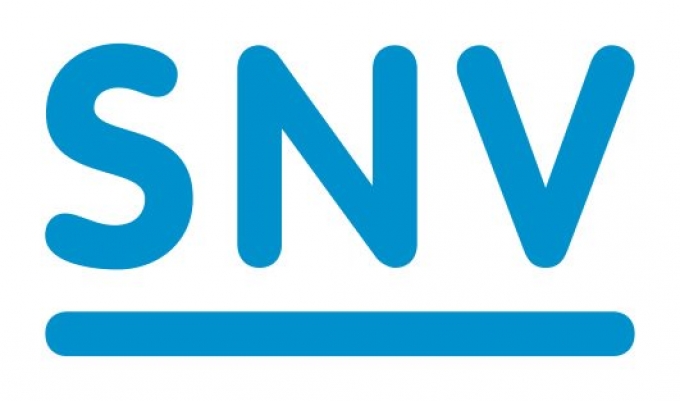
Website
https://www.snv.orgType of partner organization
International NGO
Involvement with the GPA
Steering Group
Area of Contribution/Collaboration
Technical Expertise and Capacity Building
Area of Energy Intervention
Household Electrification Services
Geographic Scope
Global
Modern Energy Cooking Services Programme (MECS)
About
Modern Energy Cooking Services (MECS) is a five-year programme funded by UK Aid (FCDO) which aims to spark a revolution through rapidly accelerating the transition from biomass to clean cooking on a global scale. By integrating modern energy cooking services into the energy planning, MECS looks to leverage investment in renewable energies (particularly regarding electricity access, both grid and off-grid) to address the clean cooking challenge. Modern energy cooking is Tier 5 clean cooking, and therefore MECS also supports new innovations in other relevant cooking fuels such as biogas, LPG (bio) and ethanol. The intended outcome is a market-ready range of innovations (technology and business models) which lead to improved choice of affordable, reliable and sustainable modern energy cooking services for consumers. We seek to have the MECS principles adopted in the SDG 7.1 global tracking framework and hope that participating countries will incorporate modern energy cooking services in energy policies and planning. For more information, visit www.mecs.org.uk or follow us @UKMECS on Twitter.Contribution/Collaboration areas
The MECS humanitarian stream started in January 2020. It consists of 3 work packages: understanding transition pathways to MECS in displacement situations; technology, innovation and delivery models; and capacity building and scale up. We have been engaging with key stakeholders in the humanitarian energy sector and published the "Landscape analysis of modern energy cooking in displacement settings" report which provides an overview of the current status of modern energy cooking in displacement settings. We have also conducted a review of modern energy cooking projects and programmes targeting displaced populations in our paper "Funding and Delivery Models for Modern Energy Cooking Services in Displacement Settings: A Review". MECS have been supporting the development and delivery of the Energy Delivery Models (EDM) training, both financially and with expertise sharing and mentoring of participants. We are co-organisers of the webinar series on Cooking Energy in Displacement Settings (read our blog on the first webinar in the series), and a part of the Clean Energy Challenge which we have made an official pledge to support.Modern Energy Cooking Services Programme (MECS)
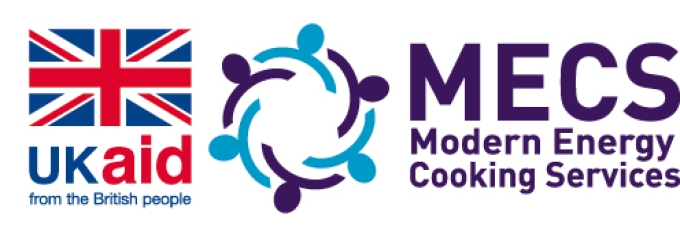
Website
https://mecs.org.uk/Type of partner organization
Academic/Research Institution
Involvement with the GPA
Steering Group
Task Force
Clean Energy Challenge (CEC)
Area of Contribution/Collaboration
Planning and Coordination
Policy Advocacy and Host Community Resilience
Innovative Finance and Funding
Technical Expertise and Capacity Building
Data, Research and Evidence
Area of Energy Intervention
Household Cooking Solutions
Geographic Scope
Africa
Asia and the Pacific
Mercy Corps
About
Mercy Corps is a global team of humanitarians, working together on the front lines of today’s biggest crises to create a future of possibility, where everyone can prosper. Our mission is to alleviate suffering, poverty and oppression by helping people build secure, productive and just communities. In more than 40 countries around the world, over 5,600 team members work side by side with people living through poverty, disaster, violent conflict and the acute impacts of climate change. We’re committed to creating global change through local impact — 85% of our team members are from the countries where they work. We bring a comprehensive approach to every challenge, addressing problems from multiple angles. And we go beyond emergency aid, partnering with local governments, forward-thinking corporations, social entrepreneurs and people living in fragile communities to develop bold solutions that make lasting change possible.Contribution/Collaboration areas
Mercy Corps views access to clean energy services as a necessary condition for sustainable development (SDG7) and as a vital cross-cutting issue that underpins the achievement of a number of SDGs. By enabling access to and use of sustainable, affordable and reliable energy services, we can increase the resilience of communities and ecosystems to climate change. Higher demand for sustainable energy will lead to reduced reliance on natural resources, create new employment opportunities across a range of ‘green’ value chains, and promote low carbon development worldwide. We apply our expertise in harnessing the power of market systems and good governance to test solutions in multiple contexts. We have the ability to scale models that enable communities to access the technology, information, financial tools, and the social support they need to adapt, and ultimately transform their access to reliable, clean, affordable energy. Mercy Corps works directly with communities to ensure that access to energy is available across diverse user groups. Our approach follows three main principles: (1) COMMUNITY ENERGY SERVICES: Mercy Corps works directly with communities to ensure that access to energy is available across diverse user groups. This approach allows us to conduct capacity building exercises at the appropriate scale; facilitate targeted awareness campaigns; and ensure strong and inclusive governance at the community level. (2) HARNESS PRIVATE SECTOR PARTNERSHIPS THAT WORK FOR THE POOR, as our experience has proven that acting in partnership with the private sector is essential to making market systems work better for the poor. We have learned that partnerships with the private sector are critical to achieving scale, even in complex settings. (3) UTILISE INNOVATIVE FINANCING SOLUTIONS as one of the main barriers to providing and accessing clean and sustainable energy products is the high upfront costs. On the supply side, the markets we support are viewed as unattractive and the private sector are often hesitant to invest. On the demand side, a lack of economic opportunities and financial constraints means many are dependent on seasonal or small incomes, which makes saving difficult.Mercy Corps
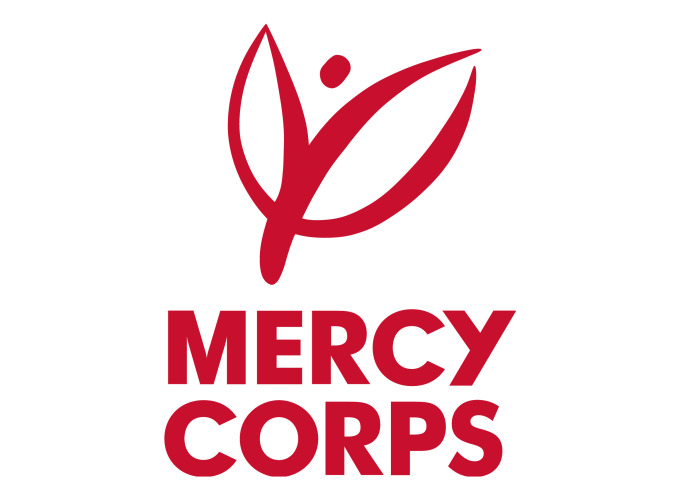
Type of partner organization
International NGO
Involvement with the GPA
Steering Group
Clean Energy Challenge (CEC)
Humanitarian Energy Exchange Network (HEEN)
Area of Contribution/Collaboration
Planning and Coordination
Policy Advocacy and Host Community Resilience
Data, Research and Evidence
Area of Energy Intervention
Household Cooking Solutions
Household Electrification Services
Electrification of Community Facilities
Decarbonization of Organization/Infrastructure
Geographic Scope
Global
Afghanistan
Burkina Faso
Democratic Republic of the Congo
Ethiopia
Indonesia
Kenya
Liberia
Myanmar
Niger
Nigeria
Palestine
Puerto Rico
Somalia
Uganda
Practical Action
About
We are an international development organisation putting ingenious ideas to work so people in poverty can change their world. We help people find solutions to some of the world’s toughest problems. Challenges made worse by catastrophic climate change and persistent gender inequality. We work with communities to develop ingenious, lasting and locally owned solutions for agriculture, water and waste management, climate resilience and clean energy. And we share what works with others, so answers that start small can grow big.Contribution/Collaboration areas
• Practical Action is a member of the Steering Committee of the GPA • Practical Action is implementing a Renewable Energy for Refugees (RE4R) project in Rwanda and Jordan, delivering improved access to renewable energy for people in displacement at household, enterprise and community levels. The project aims to deliver renewable energy investments through an innovative approach in humanitarian settings, working directly with refugees and host communities in refugee camp and urban centers, see our factsheet for more information. The project is implemented in partnership with UNHCR, the UN’s Refugee Agency, Norwegian Refugee Council, Energy4Impact and Chatham House. Four areas of focus: o Household – providing tier 1 household electricity access and tier 3-4 improved cook stoves to in-camp refugees in Rwanda and finding innovative ways to improve out-of-camp refugees energy access in Jordan. o Livelihoods -Supporting productive uses of energy for refugees through access to finance, technical support, mentoring and training as well as renewable energy vocational technical and employability skills for youth in Jordan o Communities – providing solar streetlights for camps in Rwanda and solar PV and energy efficiency upgrades for schools in Jordan. o Global activities - documenting the impact and the lessons learned from RE4R to share the processes and the decisions taken and make the case for investing in energy in humanitarian settings to re-shape the humanitarian response. • Practical Action Consulting (PAC) are conducting energy needs assessments in the Sahel region, in consortium with TTA, University of Comillas Madrid, and a broad range of local experts in different target countries. We are providing technical assistance to GIZ/ESDS on end-user finance mechanisms, energy-related jobs and livelihoods in displacement settings and a socio-economic impact assessments of mini-grids in refugee settlements in Kenya. PAC also conducted market assessment across displaced communities in East Africa, including Bidi Bidi refugee camps and Kakuma.Practical Action
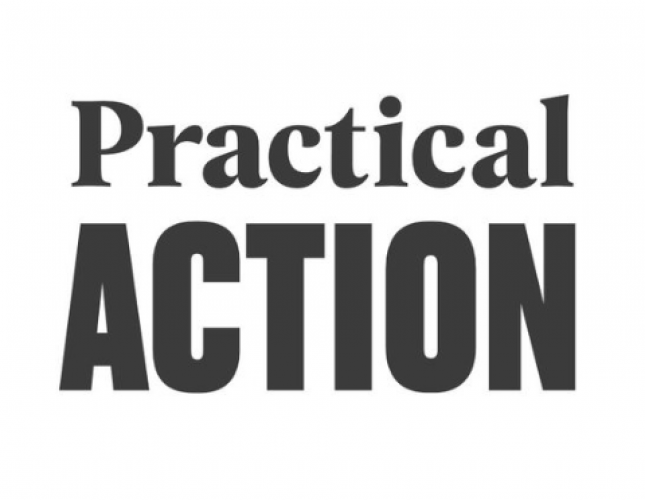
Type of partner organization
International NGO
Involvement with the GPA
Steering Group
Humanitarian Energy Exchange Network (HEEN)
Area of Contribution/Collaboration
Planning and Coordination
Policy Advocacy and Host Community Resilience
Data, Research and Evidence
Area of Energy Intervention
Household Cooking Solutions
Household Electrification Services
Electrification of Community Facilities
Geographic Scope
Global
Jordan
Kenya
Rwanda
Uganda
World Food Programme (WFP)
About
The World Food Programme is the world’s largest humanitarian organization, saving lives in emergencies and using food assistance to build a pathway to peace, stability and prosperity for people recovering from conflict, disasters and the impact of climate change.Contribution/Collaboration areas
WFP is working towards Zero Hunger by 2030. WFP delivers food, cash and other assistance in emergencies to around 90 million people every year. At the same time, we focus on sustainable development, promoting long-term change by tackling the root causes of hunger and malnutrition, and working in partnership with national governments and communities. The award of the 2020 Nobel Peace Prize to WFP is recognition that food security, peace, and stability go together. Energy is an enabler that contributes to WFP’s ‘Saving lives and Changing lives’ agenda. As most foods need cooking to be consumed, energy programmes go hand in hand with food assistance. WFP implements market-based, sustainable energy solutions not only to ensure consumption but also to strengthen resilience improving local food systems and value chains. Three areas of focus: (i) Increasing Access to Modern Cooking for Vulnerable Population: leveraging WFP’s deep field presence and systems for cash transfers to increase access and strengthen the local value chain for modern cooking. (ii) Energising School Feeding: advancing schools as community innovation hubs that deliver modern cooking solutions, electricity, digital learning and livelihood opportunities; (iii) Empowering Smallholder Farmers: supporting smallholder farmers and the agriculture sector through inclusive agricultural growth and the sustainable dissemination of energy equipment and services to boost food production, processing and preservation.World Food Programme (WFP)

Type of partner organization
UN Organization
Involvement with the GPA
Steering Group
Task Force
Clean Energy Challenge (CEC)
Humanitarian Energy Exchange Network (HEEN)
Area of Contribution/Collaboration
Planning and Coordination
Innovative Finance and Funding
Technical Expertise and Capacity Building
Data, Research and Evidence
Area of Energy Intervention
Household Cooking Solutions
Electrification of Community Facilities
Decarbonization of Organization/Infrastructure
Emergency Response
Geographic Scope
Global

